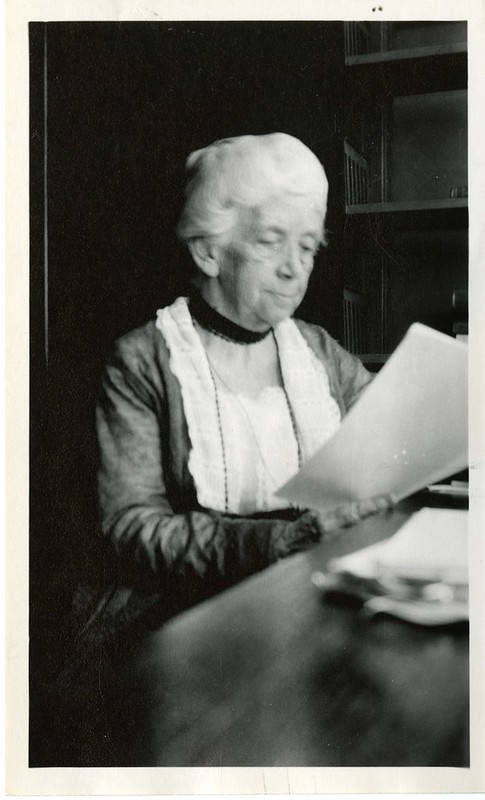- About MAA
- Membership
- MAA Publications
- Periodicals
- Blogs
- MAA Book Series
- MAA Press (an imprint of the AMS)
- MAA Notes
- MAA Reviews
- Mathematical Communication
- Information for Libraries
- Author Resources
- Advertise with MAA
- Meetings
- Competitions
- Programs
- Communities
- MAA Sections
- SIGMAA
- MAA Connect
- Students
- MAA Awards
- Awards Booklets
- Writing Awards
- Teaching Awards
- Service Awards
- Research Awards
- Lecture Awards
- Putnam Competition Individual and Team Winners
- D. E. Shaw Group AMC 8 Awards & Certificates
- Maryam Mirzakhani AMC 10 A Awards & Certificates
- Two Sigma AMC 10 B Awards & Certificates
- Jane Street AMC 12 A Awards & Certificates
- Akamai AMC 12 B Awards & Certificates
- High School Teachers
- News
You are here
An Explication of the Antilogism in Christine Ladd-Franklin's "Algebra of Logic" – Later Career and Historical Significance
Despite not having received the degree for her work in 1882, Ladd-Franklin’s accomplishments did not go unrecognized. Her work in optics was so well-regarded that in 1887 she was awarded an honorary doctorate by Vassar, the only person to ever have been given this honor [Green and LaDuke 2016, p. 341]. In 1926, during celebrations of the institution's 50th anniversary, Johns Hopkins offered to bestow upon her an honorary doctorate in a special ceremony. Her response, as described by historian Judy Green, was to remind those at Johns Hopkins that she had already been awarded an honorary doctorate by Vassar. She went on to explain that, instead of another honorary degree, she believed she should be given the PhD she earned for the work done there [Green 1987, p. 124]. Thus it was in 1926, forty-four years after her completion of the degree requirements, Christine Ladd-Franklin was finally awarded her PhD by Johns Hopkins University for her work in symbolic logic [Green 1987, p. 124]. As the first female to earn, but not be awarded, a PhD in mathematics in the United States, Christine Ladd-Franklin deserves to be recognized for what she was: a pioneer in mathematics, physiology, and women’s rights, contributing significant and impressive work across all of these areas.
Christine Ladd’s contributions to the fields of mathematics and science did not end with the completion of her doctoral-level studies at Johns Hopkins. Shortly after completing her studies in 1882, she married Fabian Franklin (1853–1939), a fellow student at Johns Hopkins who received his PhD in mathematics in1880. She continued her work in symbolic logic and began to work in the field of physiological optics, where she contributed to a theory of color vision, eventually publishing a book of her work in optics [Ladd-Franklin 1929]. She also became an advocate for women’s education, spending both her time and money to help women obtain graduate education [Green 1987, pp. 122–124].

Christine Ladd-Franklin (1847–1930)
Acc. 90-105 - Science Service, Records, 1920s–1970s, Smithsonian Institution Archives
Julia M. Parker (University of Missouri – Kansas City), "An Explication of the Antilogism in Christine Ladd-Franklin's "Algebra of Logic" – Later Career and Historical Significance," Convergence (November 2019)




